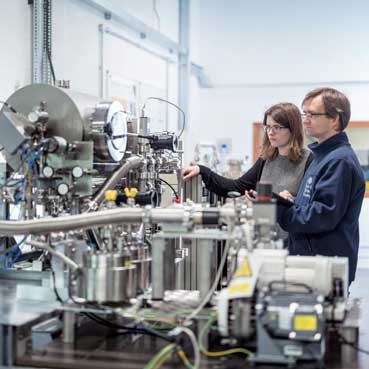Our programme supports the development of a skills portfolio towards Chartered Engineer (CEng) status and forming professional networks in the UK fusion supply chain.

The Fusion Engineering Centre for Doctoral Training (CDT) offers a unique 4-year PhD programme designed for STEM graduates who want to solve real-world challenges in fusion energy. You’ll get the specialist training, hands-on experience, and industry exposure — preparing you to launch your career in one of the most exciting areas of engineering.
Core training (first 12 weeks)
To make the programme accessible to graduates from across the STEM disciplines, all researchers begin with 12 weeks of foundational fusion engineering training.
You’ll join a national cohort of PhD researchers for core workshops led by university experts and fusion industry partners—covering the theoretical, practical, and computational skills that span the full fusion engineering lifecycle.
Workshop themes
Training is delivered through expert-led sessions focused on four key themes:
- Powering fusion explores the science and technology behind generating, containing, and sustaining fusion reactions.
- Research methods equips students with the tools and techniques needed to conduct rigorous, data-driven, and innovative research.
- Fusion engineering focuses on the design, analysis, and integration of complex systems required for operational fusion devices.
- Engineering and society examines the ethical, environmental, and societal dimensions of engineering decisions in the context.
Hybrid delivery
Most of your core training will happen at your home university, with regular in-person sessions to bring the full cohort together:
Mon–Tues: Study at home campus, with synchronous live workshops online
Wed–Thurs: In-person workshops (hotel overnight with cohort)
Fri: Study at home campus, with synchronous live workshops online.
Bespoke on-going training
Following the initial training, researchers will identify and attend bespoke training to support their specific project needs for the remainder of their first year in the programme. This secondary training will be relatively light touch, hence researchers will be able to work on their doctoral project.
The CDT will continue to provide ongoing training, including:
- Cohort workshops
- Seminars
- Summer schools
- Conferences.
You’ll also receive a healthy project budget at your host institution to support your research activities.
Industrial placement
As part of the programme, you will undertake a placement within the UK fusion industry, developing work directly relevant to your thesis and building real-world experience in a live research environment.
Open projects
Browse live projects co-developed with industry
Interested in joining the Fusion Engineering CDT?
Applications must be submitted through the host university’s PGR admissions system. We do not accept CVs or speculative applications by email.
